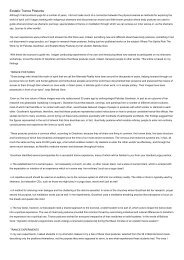Executive Coaching - A Guide For The HR Professional.pdf
Executive Coaching - A Guide For The HR Professional.pdf
Executive Coaching - A Guide For The HR Professional.pdf
Create successful ePaper yourself
Turn your PDF publications into a flip-book with our unique Google optimized e-Paper software.
What Is the Boss’s Role? 93<br />
..............................<br />
<strong>The</strong> frequency of feedback is almost as important as the content<br />
of the feedback. When the boss observes changes in the client’s<br />
behavior, it is very helpful to communicate these observations to the<br />
coach and to the client. Particularly early on in the assignment, it<br />
can be very rewarding for the client as well as the coach to know that<br />
favorable behavior changes are evident. Just how well the boss thinks<br />
the changes are going is a topic worth sharing with the coach, who<br />
is in a position to mediate this information with the client. If the<br />
boss does not see much change, then this fact is best communicated<br />
first to you and to the coach. <strong>The</strong>re may be some reasons why behavior<br />
changes are not evident, and a three-way discussion may help to<br />
elucidate the reasons for this before involving the client.<br />
If the boss thinks that the behavior changes are going well, the<br />
boss may want to be liberal with praise. This will reinforce the new<br />
behaviors and signal to the client and the coach that they are on<br />
the right track. In the long run, it is the boss’s opinion that matters<br />
more than that of others, and any reinforcement from the boss is<br />
likely to have stronger effects than if the same words were to come<br />
from another source.<br />
Helping the Overall Effort<br />
How the boss communicates about the coaching effort can make or<br />
break its success. If the coaching is viewed as another way to accelerate<br />
the learning of new skills and behaviors, then it may more easily<br />
gain acceptance by the client and key stakeholders. If the<br />
coaching is viewed as a last-ditch remediation or a final desperate<br />
attempt, then the outcome may be seen as less hopeful and not worthy<br />
of the energy required to be expended. When coaching is viewed<br />
in a positive light, the motivations of the client, the coach, and the<br />
rest of the organization are focused on a successful outcome and it<br />
can become a win-win situation.<br />
<strong>The</strong> boss’s attitude about coaching is at the foundation of<br />
this matter. It’s important that the boss believe in the employee’s

















